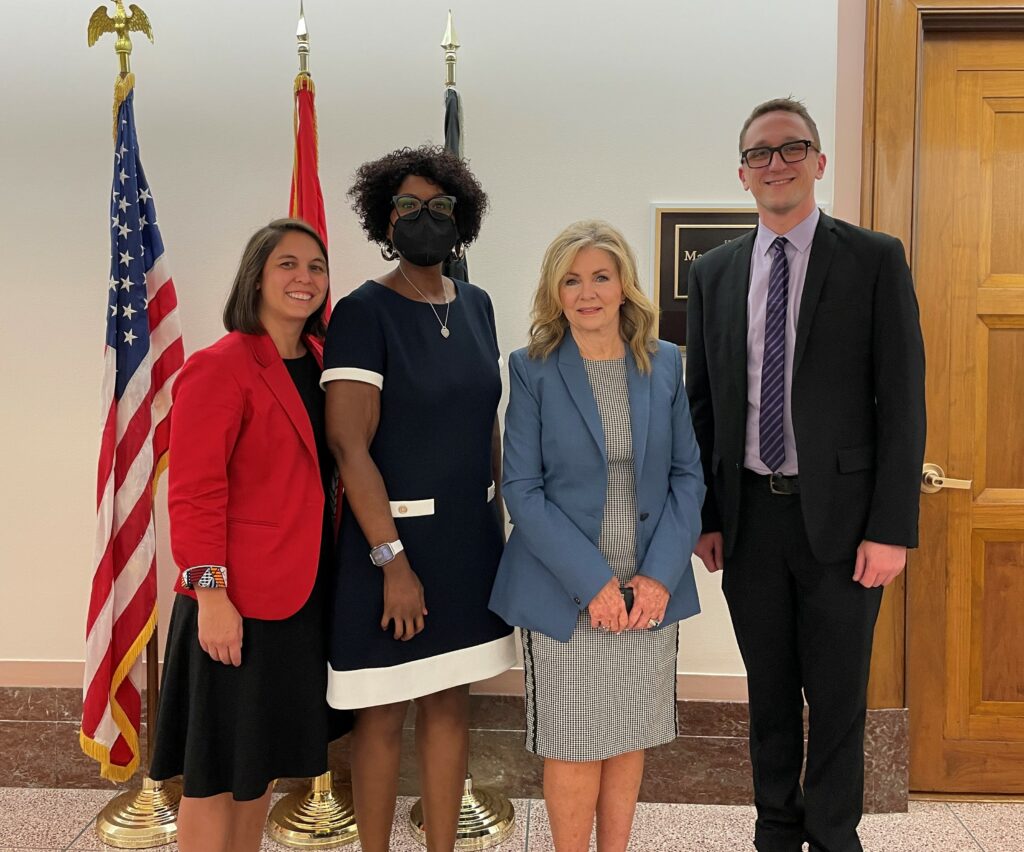by Kevin Dean, President & CEO, Tennessee Nonprofit Network
So, you’ve landed a meeting with your elected official – a chance to champion your nonprofit’s cause and make a real difference. But let’s be honest, that first meeting can feel intimidating. Don’t worry, it’s perfectly normal to have a few butterflies! At my first Lobby Day in Washington, DC, I was terribly nervous! Not only did I accidentally get melted chocolate all over my suit (I’m still blaming Andrea!), I also had a near panic attack when a legislative aid asked me a question I couldn’t answer. He wasn’t even a Congressman, and I was sweating bullets. Imagine if it had been a Senator!
My nervousness was completely unnecessary, however, and yours should be, too. After my initial bout with anxiety, it was smooth sailing when I realized this was just another conversation with another stakeholder. I easily found myself at ease. My colleague, Andrea, and I were able to advocate for items like the Charitable Act and provide data to legislators that they didn’t already know. Though you might be meeting with someone you’ve seen on CNN, it doesn’t mean they aren’t a human being just like you. You’re the expert in the room, and they are there to hear you out. To help you navigate the political landscape and have a successful conversation, here are some best practices to keep in mind:

Know Your Audience (and Your Message): Research the official’s stance on issues relevant to your cause. This will help you tailor your message and highlight areas of potential agreement. Frame your advocacy as a way to support their goals, not simply push your own agenda.
Speak the Right Language: Elected officials are bombarded with information. Avoid jargon and complex terms. Focus on clear, concise communication and impactful data. Ditch the loaded language! Words like “bureaucracy” or “entitlements” might shut down conversation. Opt for neutral, solution-oriented terms. You don’t have to compromise your values, but avoid inflammatory language that could alienate the official.
Tell a Great Story: Focus on the human impact of your work and the economic impact of your work. Both are important, but sometimes the economic impact speaks more to legislators than the human side. Consider bringing a client or program participant to share their story. If you leave them with a powerful story that they won’t soon forget, your organization and its mission is likely to stick with them long after you leave their office.
Remember, You’re the Expert: Don’t downplay your expertise! You are on the front lines of your cause, and your insights are invaluable. Present data and statistics that demonstrate the need for your work and the positive impact you have on the community.
The Power of “We”: Highlight how your work complements the official’s goals and the broader community. Show how your nonprofit is a partner in progress, not just another voice demanding something.
Leave Them Wanting More: Don’t overwhelm the official with a laundry list of requests. Focus on one or two key asks and be clear about what kind of support you need (funding, policy changes, etc.).
Leave Takeaways: Leave one-sheets, policy briefs, and other information about your organization and its mission behind. Like the rest of us, it can be “out of sight, out of mind” for our legislators. Make sure your takeaways are short and sweet and quickly and easily highlight what you want them to know.
Follow Up is Key: A well-crafted thank-you note reiterating your key points and offering additional information can solidify the connection. Stay engaged! Keep the official updated on your progress and invite them to events that showcase your impact.
Building relationships with elected officials is an ongoing process. Follow these tips and approach the conversation with respect, clarity, confidence, and a collaborative spirit, and you can turn those first-meeting jitters into a winning formula for your nonprofit!
